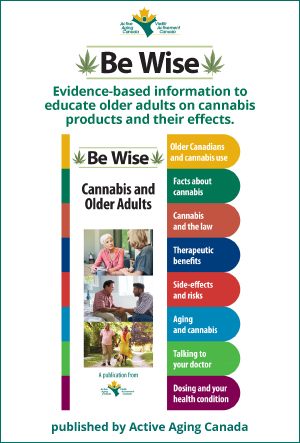Being outdoors is good for our mental health
Vol.2, Issue 5, May 2022
Mental health is just as important as physical health. Mental health means feeling, thinking, and acting in ways that allow you to enjoy life and deal with its challenges.
Poor mental health is not part of normal aging, but mental health problems can continue into older age. Mental health problems can also arise later in life from physical changes or from life changes such as losing a loved one or increased isolation.1
How can “nature” support our mental health as we get older?
We have known for some time that physical activity benefits our mental health. For example, studies have shown that regular physical activity (particularly in a group-setting) can ease depression in older adults.2,3
More recently, researchers have been looking at outdoor activities and mental health. These activities do not necessarily have to be ‘exercise’. It appears that spending time in green spaces benefits our mood and health. ‘Green spaces’ are any spaces the public can access with natural features like plants and trees.
A recent review of research that included older adults showed that nature-based activity therapies reduced depression and anxiety and enhanced a person’s positive experiences.4 The greatest benefits were seen after 8 to12 weeks with regular outdoor activity. Each session in nature lasted 20 to 90 minutes. These benefits seem to come from a combination of things: connection to nature, social support, physical activity, and purposeful behaviour.
There are many ways to connect with nature
Advocacy is growing for more green spaces in our communities that are age-friendly and thus accessible for all.5 But you don’t have to live near a forest or park to connect with nature. ‘Green activities’ like community gardening, nature-based arts and crafts, or using the fitness equipment at a ‘seniors park” are all outdoor activities that can positively influence our mental health and well-being. The regular connection with nature can even be a bench with a view of a flower garden or a water-fountain Even small interactions with nature can greatly benefit quality of life for older adults.6
References:
- Canadian Mental Health Association, Ontario. Mental Health and Addictions Issues for Older Adults: Opening the Doors to a Strategic Framework. 2016.
- Schuch FB et al. Exercise for depression in older adults: a meta-analysis of randomized controlled trials adjusting for publication bias. Braz J Psychiatry. 38(3):247-54. 2016.
- Yao L et al. Effect of Aerobic Exercise on Mental Health in Older Adults: A Meta-Analysis of Randomized Controlled Trials. Front Psychiatry. 12:748257. 2021.
- Coventry PA et al. Nature-based outdoor activities for mental and physical health: Systematic review and meta-analysis. SSM Popul Health. 2021 Dec; 16: 100934.
- Levinger P et al. Older people and nature: the benefits of outdoors, parks and nature in light of COVID-19 and beyond- where to from here? Int J Environ Health Res. 32(6):1329-1336. 2021.
- Finlay et al. Therapeutic landscapes and wellbeing in later life: Impacts of blue and green spaces for older adults. Health & Place, 2015; 34: 97
Liza Stathokostas, PhD
Research Director
Active Aging Canada









